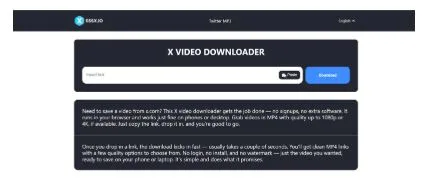How CRM is Transforming Sales in the Manufacturing Industry
| Table of ContentsWhy Do Manufacturers Need an Advanced Sales CRM?Top Features of CRM That Streamline the Manufacturing Sales ProcessKey Advantages of Adopting Sales CRM for a Manufacturing BusinessBottom Line |
For years, many manufacturing businesses have relied on outdated or fragmented systems to manage their complex sales processes. From tracking leads across spreadsheets to struggling with disjointed customer data, which ultimately slows down sales operations. Recognizing the need for radical improvement, various manufacturing businesses are now implementing advanced CRM systems to streamline their sales processes.
According to Forrester, CRM adoption in the manufacturing industry is accelerating at a fast pace. In fact, 71% of manufacturers had adopted CRM tools by 2023, leveraging them to modernize their sales operations and customer engagement.
Whether you’re dealing with B2B buyers, distributors, or supply chain partners, CRM offers structured processes and real-time visibility into the entire customer journey. By streamlining the manufacturing sales process, businesses can reduce lead time, cut operational inefficiencies, and build stronger, longer-term relationships with customers.
This article explores how CRM systems are enabling digital transformation across sales functions, improving performance, and helping manufacturing businesses stay competitive in the marketplace.
Why Do Manufacturers Need an Advanced Sales CRM?
In today’s highly competitive manufacturing landscape, customer experience is as important as the product itself. As manufacturers handle complex sales cycles, including multiple decision-makers, custom orders, and long sales times, a general-purpose CRM often falls short. This is where advanced sales CRM systems come in—designed to manage end-to-end sales operations while adapting to sector-specific workflows.
According to Straits Research, manufacturers who have embraced CRM report a 21–30% boost in sales. This growth is largely driven by enhanced consumer insights, real-time data access, and digital transformation in manufacturing sales. The right CRM allows manufacturers to personalize interactions, target the right prospects, and respond faster, leading to stronger customer relationships and increased revenue.
Top Features of CRM That Streamline the Manufacturing Sales Process
1. Sales Automation in Manufacturing
From quote generation to follow-up reminders, sales automation in manufacturing helps eliminate repetitive tasks, reduce human error, and speed up the sales cycle. Automated workflows ensure timely communication, increasing the chance of closing deals faster.
2. Customer Management for Manufacturers
CRM platforms consolidate every touchpoint and customer interaction into one centralized system. This provides a 360-degree view of customers, enabling better service, tailored offers, and faster resolution of issues.
3. Integration with Manufacturing Software
Modern CRMs can be seamlessly integrated with ERP, inventory, and production management tools. This ensures accurate sales forecasting, real-time product availability checks, and better coordination between sales and production.
4. Sales Pipeline Management
Track every deal stage with visual pipelines that reflect real-time status updates. This makes it easy to identify bottlenecks, prioritize hot leads, and allocate resources effectively.
5. Sales Data Analysis and Reporting
Advanced CRM systems come equipped with customizable dashboards and reports. These insights help teams identify trends, measure campaign effectiveness, and refine sales strategies for better performance.
Key Advantages of Adopting Sales CRM for a Manufacturing Business
1. Enhanced Lead Conversion
CRMs help qualify and nurture leads through targeted communications, increasing the likelihood of conversion. Automated follow-ups ensure that no opportunity slips through the cracks.
2. Greater Operational Efficiency
By reducing manual processes and redundant communication, teams can focus on high-value tasks. Integration with ERP and inventory tools reduces data duplication and improves accuracy.
3. Better Customer Relationships
With centralized customer data, sales reps can personalize interactions and resolve queries faster. This fosters trust and strengthens long-term client relationships.
4. Real-Time Visibility and Forecasting
CRM dashboards offer real-time insights into the sales funnel, helping leadership forecast demand and make informed decisions. Predictive analytics also aids in planning production and inventory.
5. Scalability for Growing Teams
A good manufacturing CRM grows with your business, enabling the onboarding of new team members and expansion into new markets without friction. This makes scaling sustainable and manageable.
6. Faster Quote-to-Cash Cycle
Automated quotation tools reduce delays in preparing proposals and getting approvals. This leads to quicker deal closures and faster revenue realization.
7. Improved Team Collaboration
Sales, marketing, and customer service teams can collaborate through a shared platform. Task assignments, notes, and updates are accessible in one place, enhancing communication and accountability.
Bottom Line
CRM has become more than just a tool—it’s a strategic asset for manufacturers. As the industry embraces digitization, platforms that enable sales automation in manufacturing and streamline customer engagement are key to staying relevant. With the right CRM, manufacturers can gain a competitive advantage through speed, data, and smarter decision-making.
Now, if you are looking for a reliable sales CRM for your manufacturing business, then you can consider Kylas.
Kylas Sales CRM is built to meet the demands of growth-focused manufacturing companies. With unlimited user access and features like Workflow Automation and Mobile CRM functionalities, Kylas empowers businesses to enhance productivity and improve customer management.






